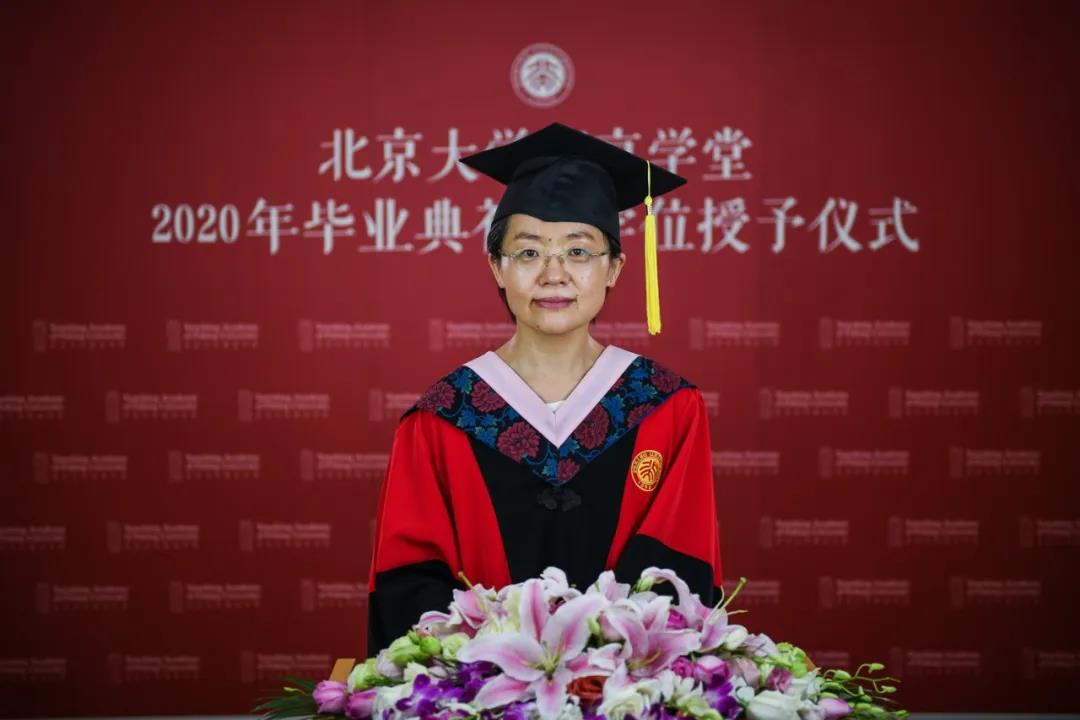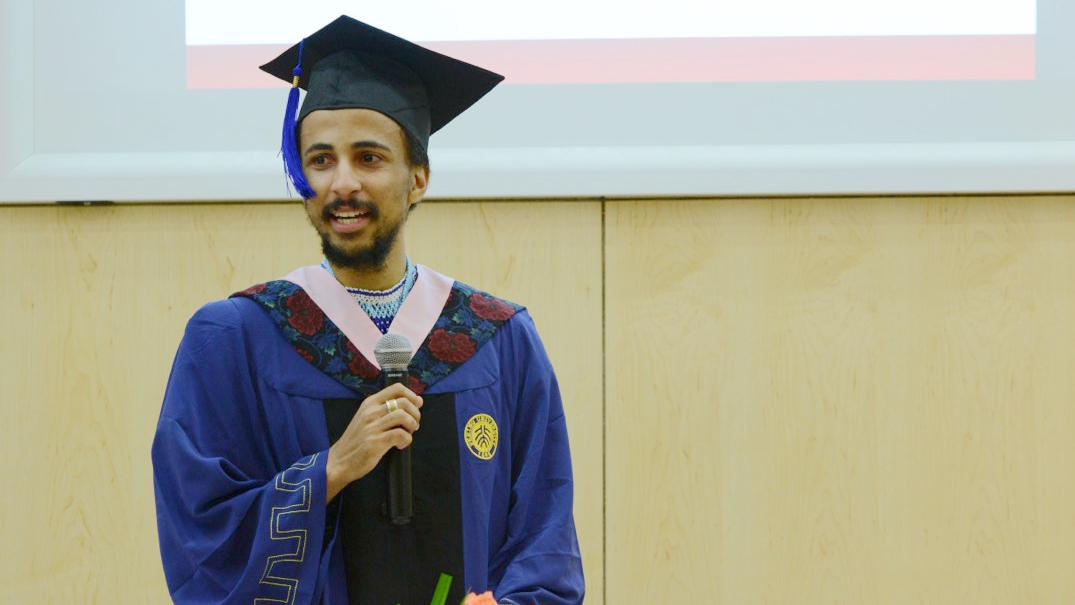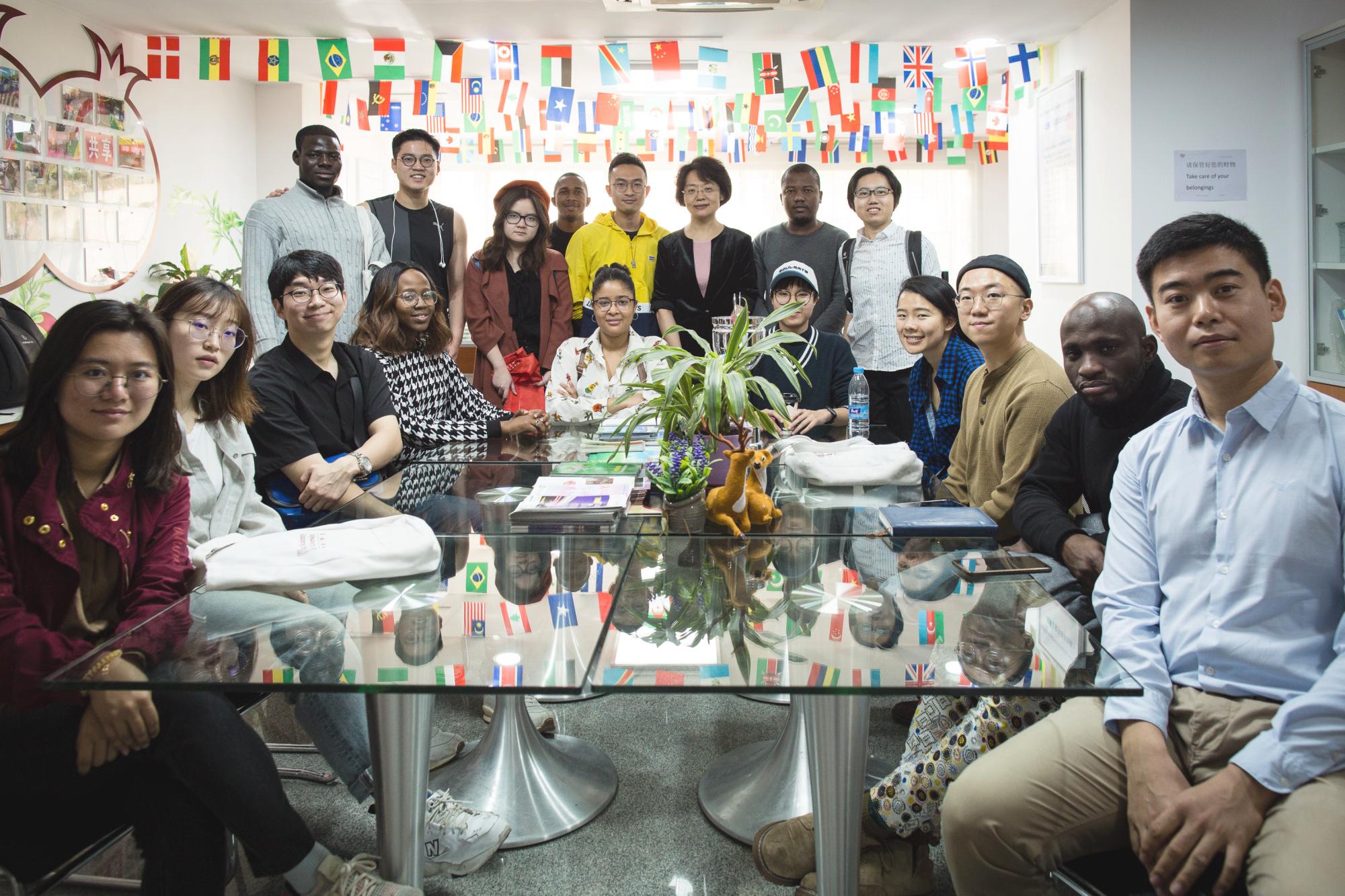Learning to be A Human, and A China Scholar
Dear Fellow Graduates,
Thanks or no thanks to the pandemic of COVID-19, we have to have such a special cloud graduation ceremony. I hope in your mind it is another luxury that only your generation could enjoy. I know you all have beautifully completed on-line defense of your MA thesis with no less amount of in-depth research and careful preparation. Indeed as the naughty Chinese words suggest, you are really “indigenous people (原住民)” of this electronic age!
Lately I heard another term which could not be more suitable to you, “Slash generation”, meaning you all have more than one interests and you are able to develop them into a professional level, so your title goes with many words: scholar, writer, director, designer, dancer, etc. This is an enviable thing for my generation and I simply have only one word for my title, an African studies specialist.
I was trained as African historian in Peking University and received my MA degree from PKU just like you in the summer of 21 years ago and later my PhD Degree. As a ‘No slash’ Chinese Africanist, I may not have any relevance with you, scholars doing global China Studies. But I have been very lucky to be involved in lots of YCA jobs since 6 years ago, from Skype interviews with former Associate Dean John Holden and David Moser, Prof. Lu Yang and other recruiting committee members, to holding extracurricular activities with many scholars as they have come to my courses in School of International Studies like Afro-Asian Studies, Comprehensive African Studies and Sino-African relations etc.
Since two years ago I have also opened a course specifically for YCA scholars on Global Migration. Together with you, I have been broadening my teaching and researching scope, and you have been my motivation and deserve my whole-hearted passion.

For the Chinese term “学者” (scholar), I like another way of translation, learner, because it simply means a whole life’s continuous endeavor, and hardly at any moment you could satisfy with what you have known, especially due to the fact that everything is rapidly changing pushed by the contemporary technology, be it the fourth industrialization, 5G, or biotechnology.
COVID-19 also has caused an unprecedented challenge for the whole globe with extreme complexity so much so that seemingly all our normal toolkits are getting useless to understand it. If the virus has tested the whole world and our medical system in particular in each country, everyone is tested his or her capacities to be optimistic, to be able to look forward, to be resilient to adapt and even to be part of any minimum effort to hold the apparently collapsing world.
Ultimately, I would say, since the COVID-19 is quite a new virus coming to affect human being, and it has been enhanced by the unprecedented scale of human movement as well as goods transportation in the world, it needs both scientists and social scientists to join efforts for a better public knowledge production aiming at a better prevention and protection before the public could deal with the challenges better.
As the virus has shown us the tendency of global locality and between saving life and having a livelihood, each country has to find its own way to combat with COVID-19; and we as learners or scholars all might contribute to such a process since we are locally situated therefore could be more conducive to the knowledge production. In another words, the subjectivity of any researcher matters, which means we have to learn to cross the social-cultural boundaries and carry enough sensibilities of the underlying nuances before we could really appreciate the object that we are doing study.
So what to do for a China Scholar today?
My answer is simple, as the Peking University spirit teaches us, “Always new, always first” (常为新,常为先). Instead of locking yourself into your room to read, please go out to face to the reality, to identify the real issues on the ground. I would like to share the evolution of China’s knowledge about Africa to show you why I suggest not ONLY relying on established literatures, but to learn to smell the real issue on the ground yourself.
Those among you that have joined me for African courses or the Sino-African relation studies would know, unlike many English literatures saying “China’s offensive diplomacy in Africa since the beginning of 21st century”, People’s Republic of China obviously has established solid relations since mid-1950’s with the continent. This part of history has often been neglected by contemporary IR scholars due to the speed of China’s current development, but if you know one of your alumnus, Luyolo(天佑), in the speech he made in the graduation ceremony two years’ ago, how he deeply cherished the Chinese greeting to him as “African brother ”(非洲兄弟), you would understand the weight of this part of history among Chinese as well as African people.

The systematic research and teaching of African history in China rightly started in this university after Bandung Conference in Indonesia, the first large conference of newly independent Asian and African countries in 1955. But much earlier than this period of time, China has started to accumulate the knowledge on Africa. Prof. Yang Renbian, the real pioneer for China’s African studies and teachings in Beida, paid particular attention to the agency of African people in his compilation of African history and advocated for placing people at the center of their history, a reversal of a century of imperial historical tradition that elevates “African colonial history” above “African History”.
Based on his digging into both Ancient Chinese documents and French and English-language accounts (including those translated from Arabian sources), Prof. Yang also suggested, at least a Chinese writer Zhao Rushi from Song Dynasty (960-1279 CE) left an early record of Africa in his book The Record of Many Foreign Countries, and his grasp of the conditions on the African East Coast was way more advanced than the Europeans of his time.
Later accounts on Africa were simple but authentic products of seafaring experiences and first-hand records of visits to the continent. Only after the Qing Dynasty did China’s view of Africa show signs of distortion by its encounter with the Western world. The racist myth of Africans being “inferior” held by colonialists began to influence the Chinese mind. It is regrettable that China, which had left colorful, first-hand accounts of Africa way earlier than the Europeans, reduced its conception of the continent to discrimination through the Qing Dynasty’s unquestioning absorption of Western knowledge. For me, today’s China must return to the starting point of its embrace of Africa with a refreshed pair of eyes, just like the curious Song and Yuan Dynasty seafarers to travel and stay as long time as possible there.
With the same spirit, the two batches of our Global Migration class travelled to Guangzhou to observe this old yet fairly new city, in the sense of being the port of ancient Silk Road since 2000 years ago and never stopped being such a window for China, since the late 1980’s started to herald in one wave after another travelers from the Global South.

Some scholar called it as the first place in China realizing the globalization of the third world, and it is obviously meaningful to understanding the transforming China through such a dimension. Some YCA scholar smartly grasped the key motivations of those travelers in this city through intensive interviews which I called praxis of the learning to be a scholar. Without it, my class may not understand the appreciation of the security living in Guangzhou deeply felt by these migrants from third world countries that might still have violence and conflict now and then, because the established literature is dominant by the difficulties of integration, which is true but couldn’t be the only story.
In a book entitled Africa and the Disciplines: the Contributions of Research in Africa to the Social Sciences and Humanities,jointly edited by several famous scholars (Robert H. Bates, V. Y. Madimbe and Jean O’Barr), they argued that, rather than chasing university rankings and competitiveness, higher education institutions should focus on “refining students’ sensibilities” for promoting global understanding and respectful behavior is so needed for globalization. The still unfolding responses that the death of George Floyd has stimulated in the world simply have shown us the absolute necessity of understanding those social, cultural as well as historical nuances that associated with different countries and different people.
YCA has set up such a unique example of respect the diversified culture. For me, the meaning is beyond culture per ce, but more about education. Only in such a big family with your cohorts coming from every part of the world and with each one and his or her culture is sincerely sensed and respected, you are able to learn to be a human being in a real internationalized world. Needless to say, behind all your success and the positive changes, including the necessary adaptation after the outbreak of COVID-19, we know there are wise guidance of Dean professor Yuan and the huge amount of administration jobs done by YCA staff as usual. They are the silent heroes and heroines to make YCA such a perfect environment for you to learn to be a human, to be a scholar.
Personally I also want to thank you for the courage, the wisdom, the kindness and the frankness that you have exhibited during the time we interacted. As an educator, I marvel all of these and I often think, our relation is actually on the opposite, because it is you are constantly teaching me the new things and new knowledge of the world, and giving me inspiration as well as hopes.
With my deep appreciation to you, I also present my sincere wishes, all the best.